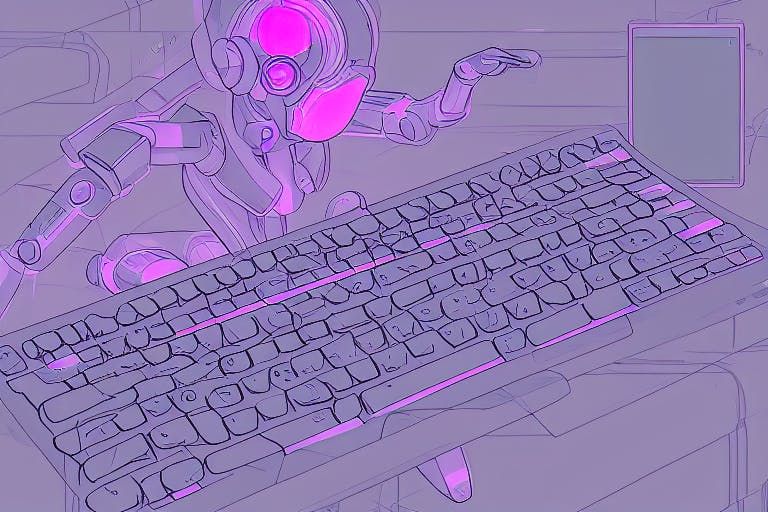“Yes Code” is how coding evolves with AI
For most people building the internet today, the hardest part of coding is all the non-code barriers that stand in the way — from overly-complex technical requirements to exclusionary social and cultural factors that keep people from being able to create. This stands in contrast to the “no code” or low-code vision, which has often been based upon the idea that actual coding is the hard part, and should be hidden away or tucked behind a different UI.
But coding, done right, is a superpower. It’s not just a way of communicating with a computer or a compiler: it’s a way of communicating with a community, and of connecting to other people. The millions of people who’ve shown up to create on Glitch, and the millions more who’ve used the apps those creators have built, are testimony to the potential of that idea. I summarized some of this a few years ago in one of our earlier posts about Yes Code:
And this fundamental, empowering idea of “Yes Code” matters more than ever now that AI’s transformation of the discipline of coding is rapidly accelerating. Now more than ever, the hard part of coding is not the code — it’s the connection to community.
Empowering creators, not just companies #
As with all new technologies these days, the attention around AI and LLMs (large language models) and machine learning is a combination of genuinely interesting new capabilities and genuinely ridiculous hype. The exact ratio of value vs. hype depends a lot on your own personal perspective, but at Glitch we have a strong bias towards wanting to make choices that age well over time, and to make technical decisions that endure.
From that standpoint, we do think AI assistance for coders is going to be an increasingly standard and pervasive part of coding workflows (I’m old enough to remember when we first got smart completion in our IDEs!) but we also think that the widespread accessibility of these tools will make more people into coders. Or put another way, it will make more people who are coders realize that they are coders. We’ve long said that anyone who ever made a really complex spreadsheet formula, or who hacked on a Neopets or MySpace website back in the day, or who installed an advanced Minecraft mod — they’re all coders! And a lot of people who have fallen out of the daily coding world, or who struggle to keep up with the relentless pace of advancement in things like JavaScript frameworks, will be more able to find the time to create when they have LLM tools to help them do it.
But what we’re not doing is presuming to choose your tools for you. We think there’s power, and value, in enabling our ecosystem to bring all of these new tools together, to compare and contrast their strengths and weaknesses, and especially to identify the things that AI tools are not good at, so we can help debug those problems collectively. For example, while a lot of commercial offerings in the coding AI space get a lot of attention, it’s just as important that open source or community-led tools be a vibrant part of the ecosystem — especially since we can see how they work, and know how their models have been trained. It’s really important that one or two companies don’t control the whole ecosystem, and communities of coders can be a powerful countermeasure that ensures that the AI markets stays competitive as it matures. Because we’re still in the early days of AI-assisted coding!
Getting to the tricky bits #
Recently, Clive Thompson (who’s long been augmenting his journalism with apps built on Glitch and other platforms), wrote “Why ChatGPT won’t replace coders just yet”, showing off how he built a todo-list app in 15 minutes using Glitch and ChatGPT. It’s exciting! But Clive reaches the conclusion that the splashy new AI tool ultimately serves to “help me quickly blast through boilerplate code so I can more quickly get to the tricky bits”. And that matches the experience we’ve heard from lots of coders — these new tools will accelerate experimentation by taking care of the drudgery, but they’re not nearly as good at the parts that have to do with innovation or the unexpected.
This is why community and connection and trust matter as much in the new world of AI-assisted coding as training models or prompt engineering. Teaching new coders, or teaching experienced coders about new tools, is going to require learning about intellectual property and permissions and how code can be ethically reused just as much as it’s going to be about the latest and greatest frameworks or programming languages. But these things can be a lot easier to figure out if you’re not doing it alone. And that goes back to the story we’ve been saying since the first day of the Glitch community, which just passed its six year anniversary since our launch: we make the internet better by lowering the barriers to creation, and letting everyone code together.
So I’ll close the same way I did a few years ago, when we first started publicly talking about the “yes code” idea:
We’re excited that Glitch is the place where so many are exploring these new tools together, and more than ever, we want to hear our community’s vision for how we all team up to make sure that every who creates with code is empowered by new AI tools to build a better internet.

